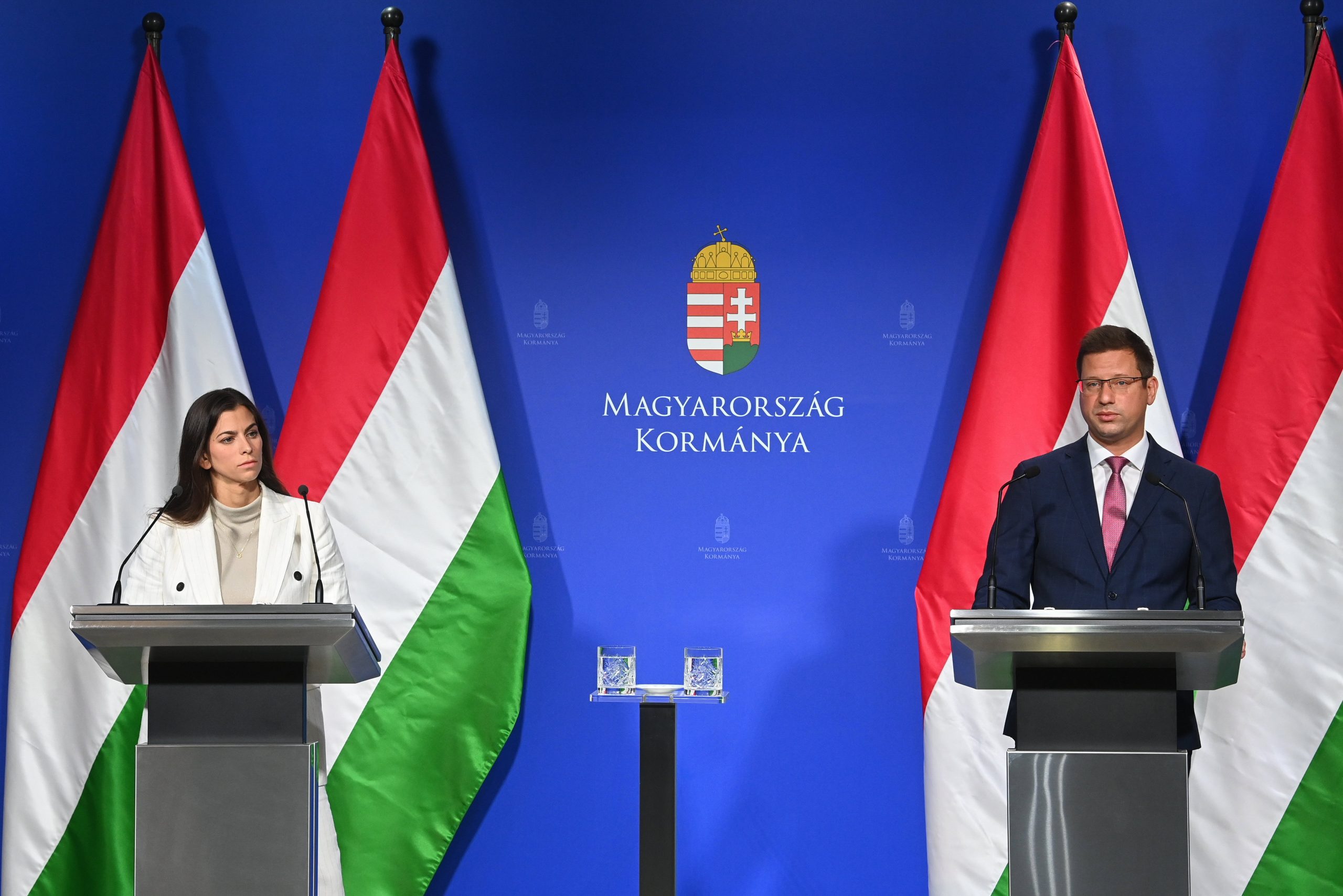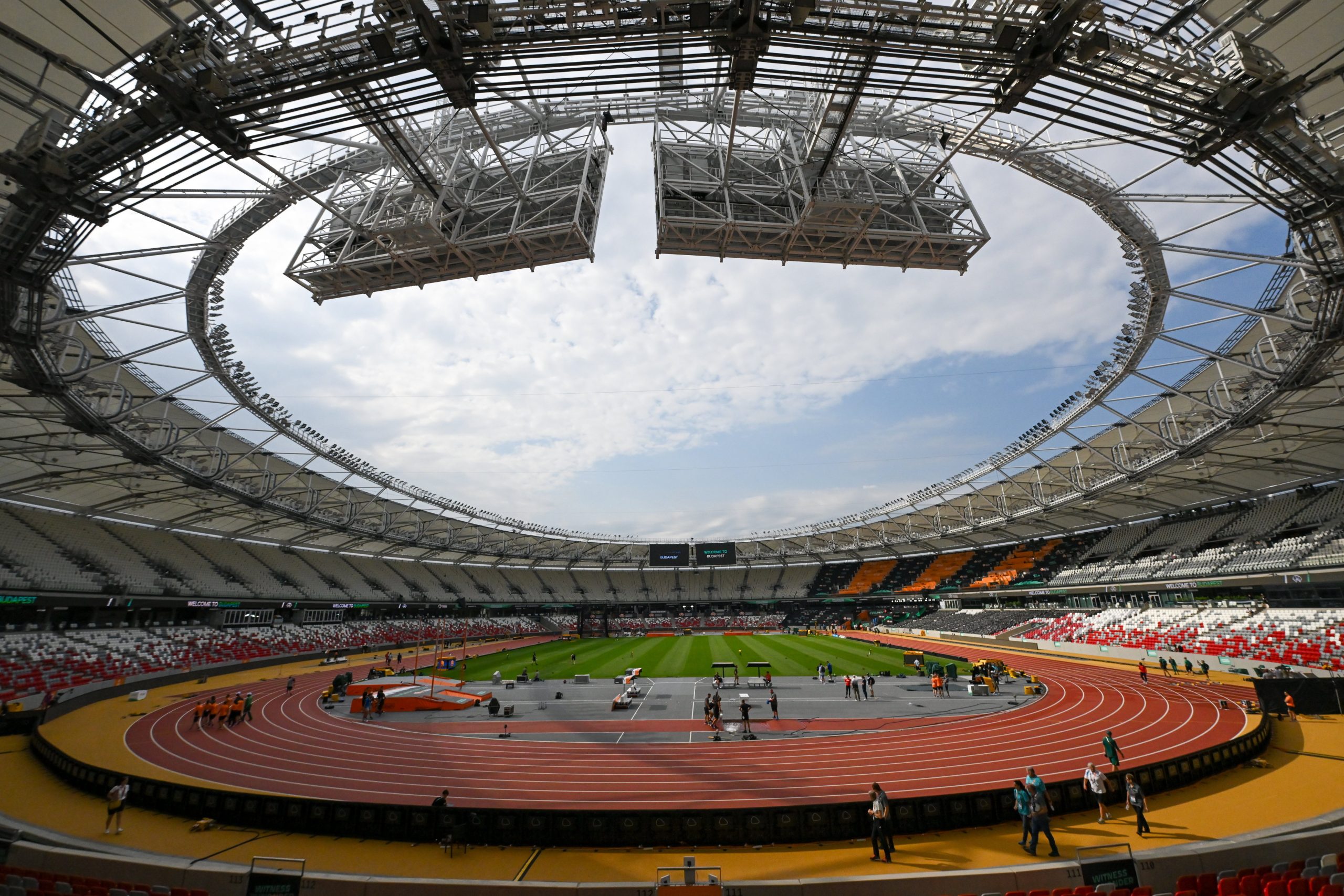
Compensation can be claimed for maize because it is the main Ukrainian import crop.Continue reading

The Government Info meeting took place on Thursday in Budapest, where Minister Gergely Gulyás and Government Spokeswoman Alexandra Szentkirályi presented the latest measures and policy developments. They touched on issues such as Ukrainian grain, inflation, and the World Athletics Championships.
Hungary is proposing that the European Union extend the ban on imports of Ukrainian grain products, expiring on September 15, the Minister heading the Prime Minister’s Office said. Gergely Gulyás added that if it does not happen, the same national measures that Hungary, Bulgaria, Poland, Romania, and Slovakia applied before the EU ban will be reintroduced.
The minister expressed hope that a solution could be found at the European level, because “it is not European solidarity to only destroy the agriculture of countries bordering Ukraine.”
He recalled that after the war had made sea transport impossible, Europe had set up a solidarity corridor for the import of Ukrainian grain. As a result, the annual imports of cereals and oilseeds, which had been only 40-50,000 tons before the war, reached 2.5 million tons in 2022, and increased to 250,000 tons per month in 2023. The problem with this is that EU rules did not force the Member States as a whole to show solidarity, but only neighboring countries, he assessed.
That is why Hungary, along with Bulgaria, Poland, Romania, and Slovakia, decided to close its borders to Ukrainian grain. In subsequent negotiations with the European Union, the European Commission recognized the legitimacy of this decision and allowed the suspension of central EU grain routes until September 15, he recalled.
The minister noted that Hungary would consult with all parties concerned on the ban on cereal imports in the event of the EU ban being lifted, in particular the other four countries concerned. However, he stressed that the Hungarian decision is independent of any other decision made by other countries, including Romania and Croatia. He noted that Poland would most certainly introduce the same measure as Hungary.
Gulyás assessed the organization of the national holiday on August 20 and the related events as a success. He highlighted that
Hungary had its most spectacular light and fireworks display ever, more people than ever before attended the festive events, and the public media television coverage set a record.
Tens of thousands of people attended the three-day national holiday event, with more than 100 programs at 20 venues, and hundreds of thousands of people watching the fireworks on Sunday evening.
The minister also praised the organization of the ongoing World Athletics Championships in Budapest, underlining that both Hungary and the capital are capable of hosting such major events. He said that the number of tickets sold had already exceeded 350,000 and that tickets for the last days were no longer available. He also called it a great success that more than 2,100 athletes had entered, saying that never before had so many athletes taken part in a world championship.

The newly built National Athletics Center, where the World Championships is being held between August 19 and 27. Photo: MTI/Illyés Tibor
The minister touched on the burning issue of inflation as well. He said that despite all the difficulties, the government seems to be able to keep its promise to bring inflation down to single digits this year, adding that there is a good chance that this could happen in October.
Gulyás emphasized that
the government wants to continue to ensure wage increases above inflation, and that there is a good chance of real wage growth this year.
On economic growth, the minister pointed out that looking at the data of the first two quarters of the year, the chances of a 1.5 percent growth rate were slim. Whether the government sees any justification for adjusting the 1.5 percent economic growth target for 2023, he said they want to wait for the third quarter data, and will decide in October.
Alexandra Szentkirályi talked about the food prices and the online price monitoring system, as well as mandatory promotions in supermarkets. She said that 10 percent of the shops inspected recently had violated the law. The most common problem was that shops implemented the price reduction but did not indicate it, while in many cases at least one product was not available or the required promotions were not respected.
The spokeswoman also reported that the online price monitor launched in June, is successfully generating price competition between shops. The new system has already led to an average price reduction of 6.7% in 54 of the 62 categories on the website, which, according to experts, could have reduced food inflation by 1.8%.
According to Alexandra Szentkirályi, some products have seen prices fall by more than the average: new potatoes by 46%, green peppers by 36%, and tomatoes by 33%. She highlighted that the price monitoring website had been visited by 1.2 million people since its launch on June 1, and that further improvements were expected in the near future, including an expansion of the 62 categories based on consumer feedback and demand.
Gulyás announced that the gas storage level is currently at 88 percent, meaning there is enough gas for 219 winter days of residential consumption. He emphasized that the country was in a good position in this respect.
Viktor Orbán’s summer holiday was also discussed at the Government Info meeting, as he usually travels to Croatia in August, but this year he has not done that so far. Gulyás told Index that the prime minister will be going on holiday at the end of the month, but he did not say what the destination would be. He said it is unlikely that Orbán will attend the Bled Strategic Forum, to be held on August 28-29, but added that “the prime minister tends to work even during his holidays, so who knows what will happen.” Gulyás pointed out that Orbán’s holiday would not be long, as he will give a speech at Fidesz’s usual season opening meeting in Kötcse on the first or second weekend in September.
Via MTI, Featured photo via MTI/Máthé Zoltán